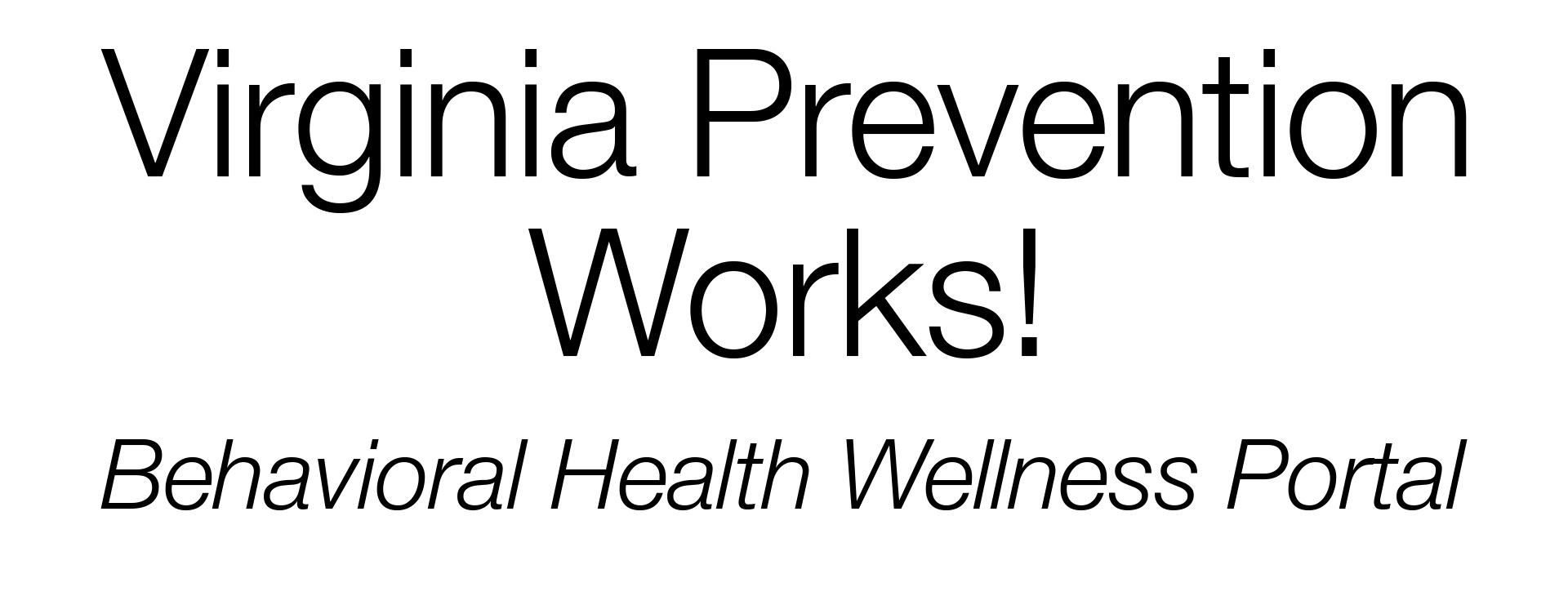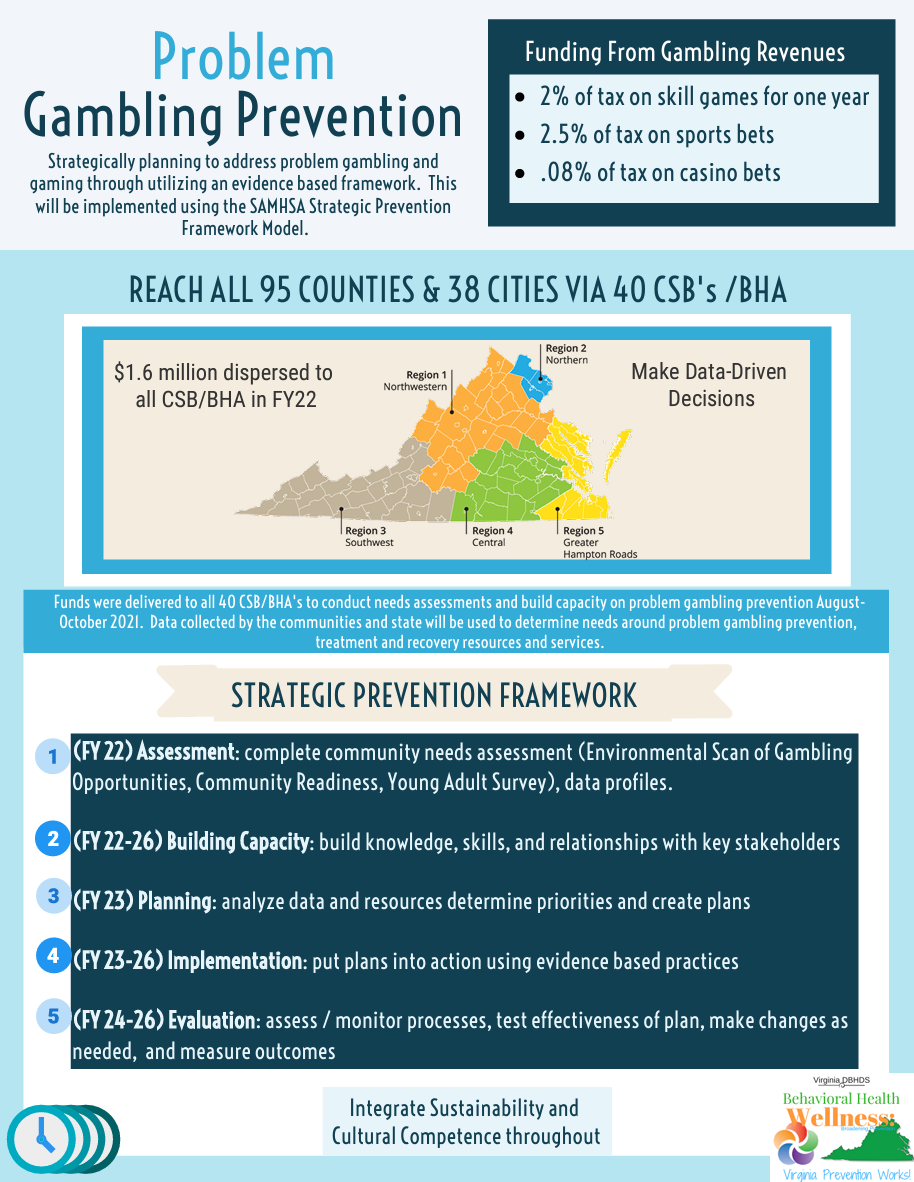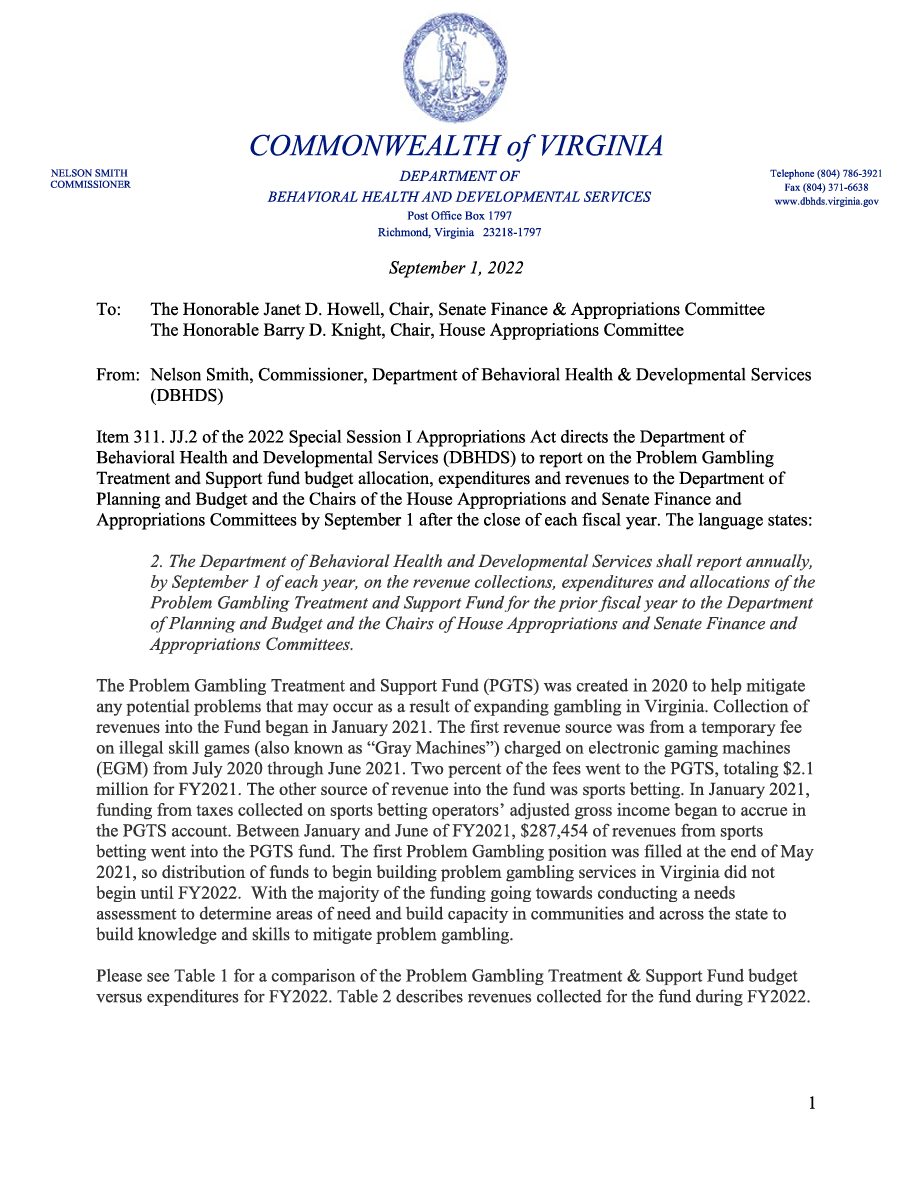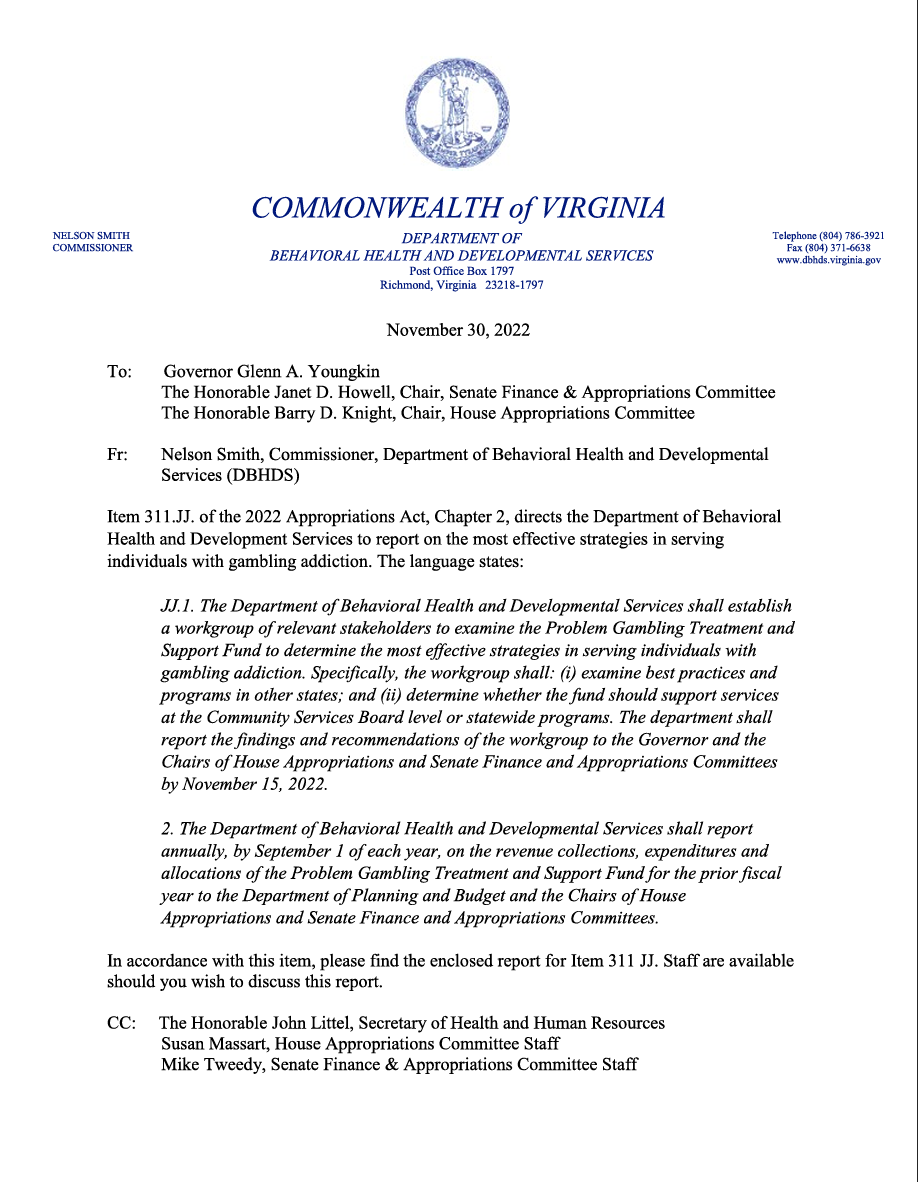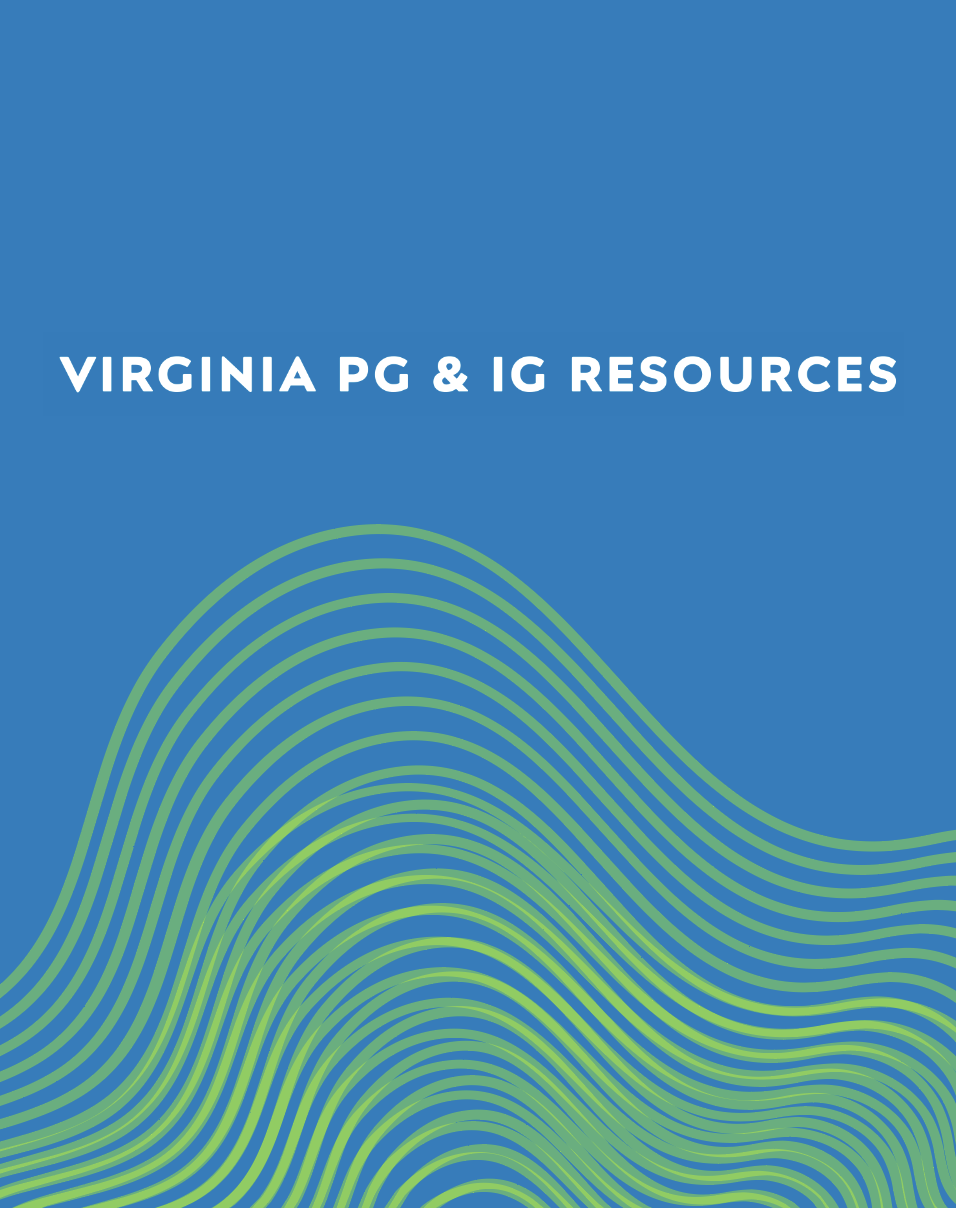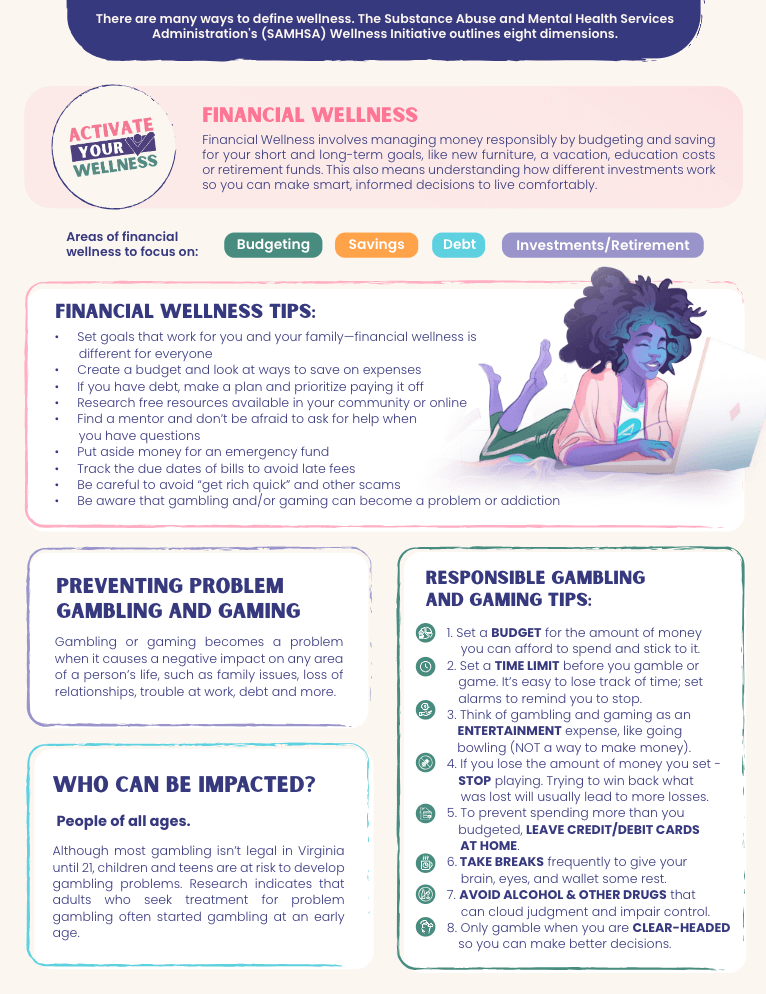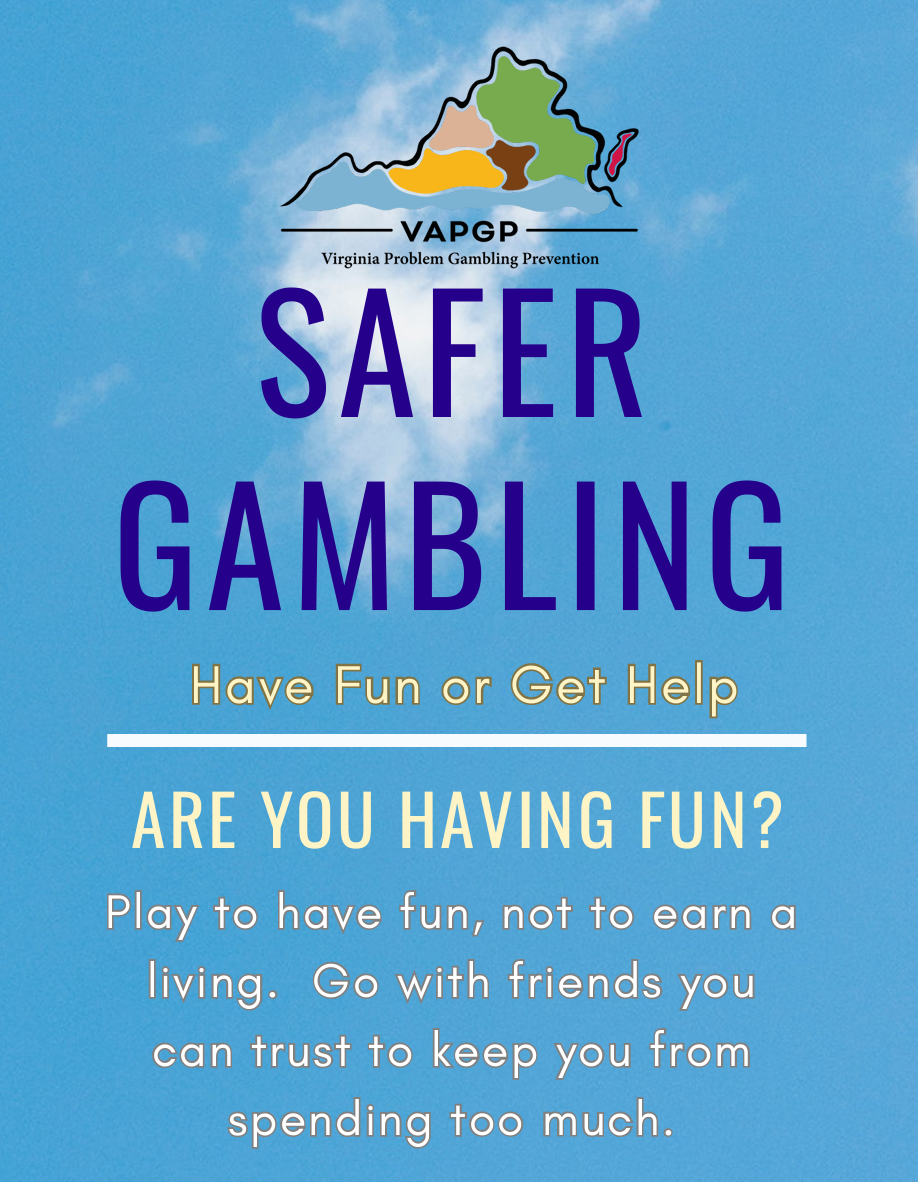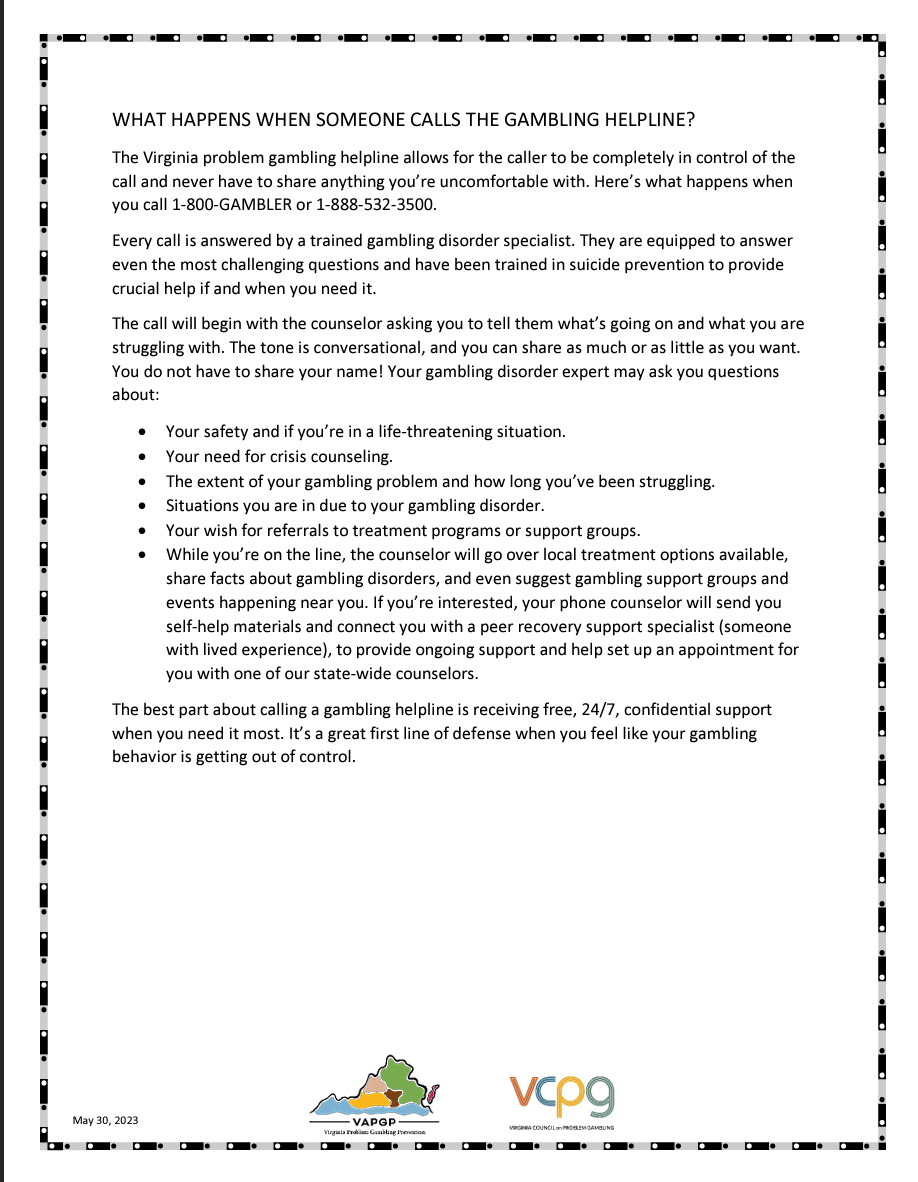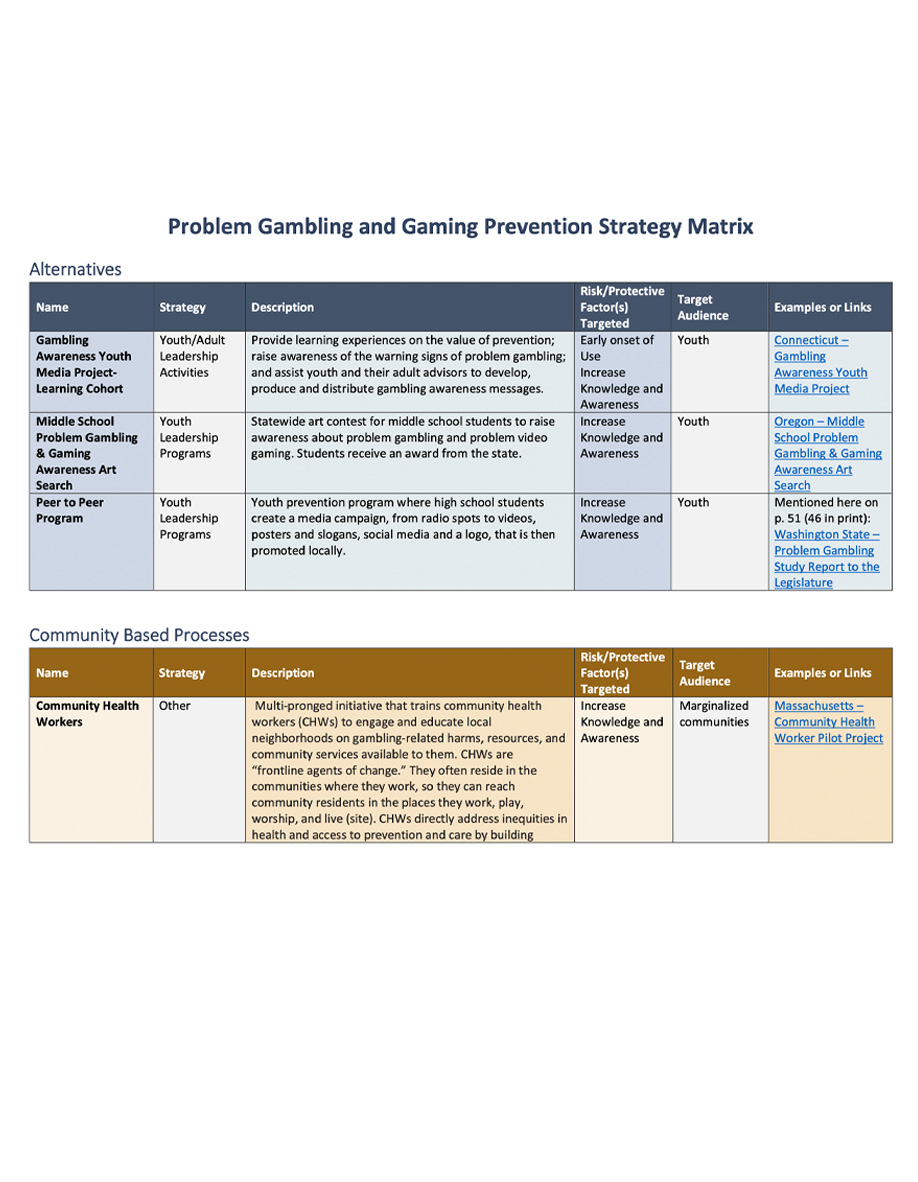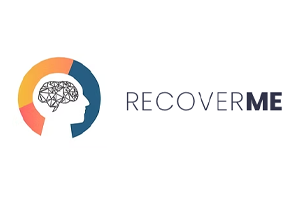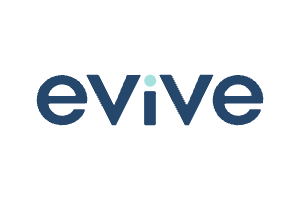Gaming and Gambling
While most adults can participate in gambling activities and not develop any problems, it is estimated that 2-6% of adults may develop problems due to gambling, including developing a gambling disorder. Disordered Gambling, just like most addictions, causes negative consequences in one’s life because of the inability to stop. A person can develop an addiction to any form of gambling including cards, casino games, sports betting, lottery, etc. There are several risk factors that can increase the likelihood of developing this addiction, such as accessibility, social acceptance, or norms, and being an adolescent. With the 2020 changes in Virginia’s gambling laws and policies, an increase in the accessibility and acceptance of participating in different gambling methods has occurred.
Virginia legally allows state-run lottery, casino gaming, sports betting, horse racing, historical horse racing, and charitable gaming. After 2020 laws legalizing new forms of betting and a portion of state revenues being devoted to mitigating the problems that may occur with an increase in gambling access, the Problem Gambling Prevention Program was created. This program is responsible for dissemination of funding and oversight of problem gambling:
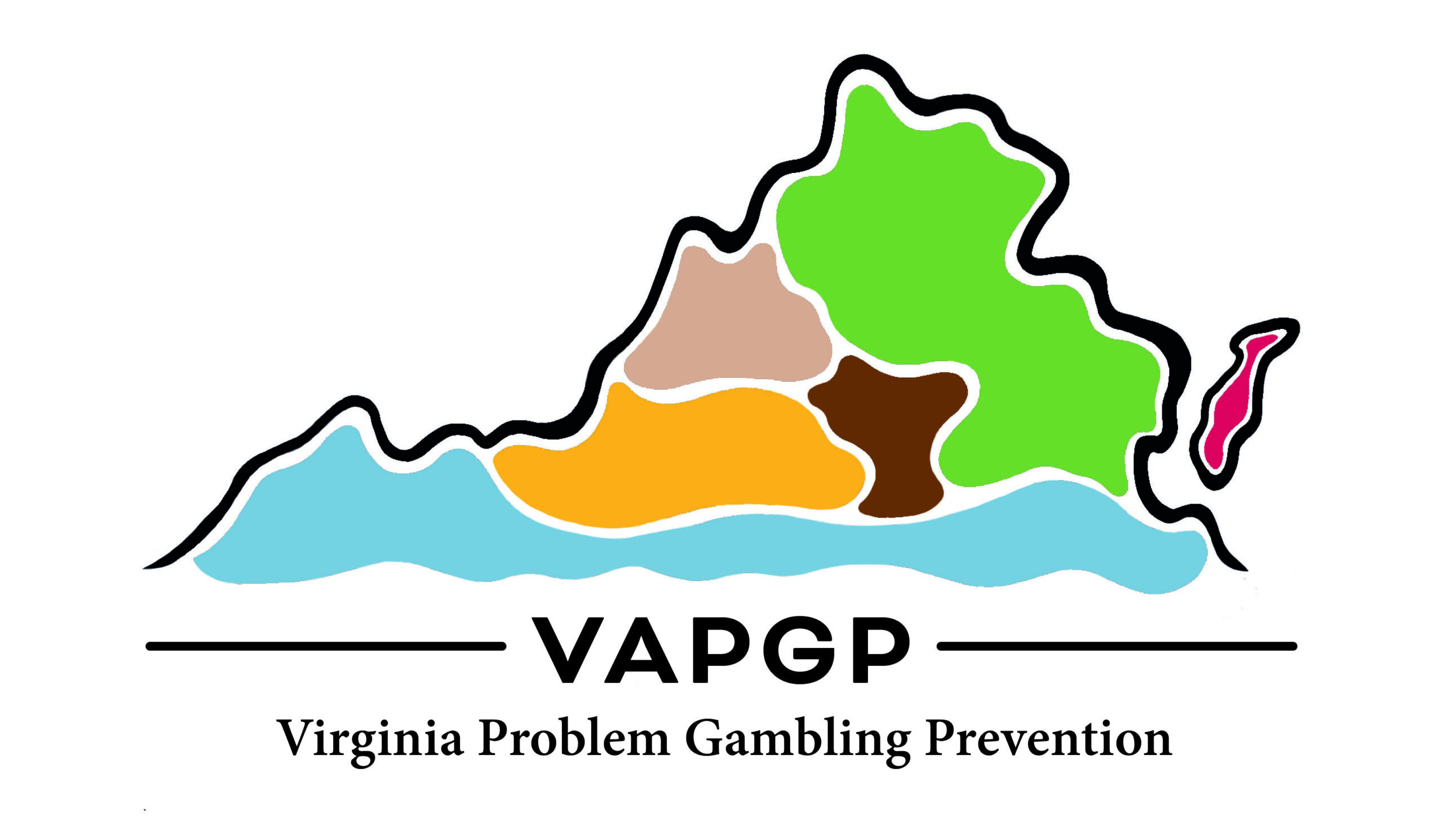
- assessment,
- building capacity,
- using data driven decision-making to plan services,
- implementation of strategies that provide education, information dissemination, community-based processes, and environmental change, and
- evaluation of processes and practices.
The program works with the 40 CSB’s to deliver services and in partnership with the Department of Behavioral Health and Developmental services Office of Recovery Services and Office of Substance Abuse Services, the Virginia Council on Problem Gambling, the Virginia Lottery and Gaming Department, the Virginia Department of Agriculture and Consumer Services, Virginia Racing Commission and the Virginia State Police.
For additional information about OBHW’s Problem Gambling Prevention program, contact the State Coordinator Anne Rogers at anne.rogers@dbhds.virginia.gov.
To learn more about Problem Gambling Prevention work in Virginia watch the video below.
Reports
Resources
Financial Resources and Apps
GamFin
Site for help with gambling-related financial problems
RecoverMe
Uses a Cognitive Behavioral Therapy approach to help people quit gambling.
National Debt Relief
888-392-0191.
Site to help those with financial problems decrease their debt and pay them off
Evive app
Offers tools and information on gambling how to stop, manage it, or do it more safely. Uses Cognitive Behavioral Therapy and Peer support.
Almond
Offers tools to help those who gamble to control or decrease their gambling. Emphasis is on Mental Health.
Yume app
Offers resources including connection to therapists and debt relief link. Uses Motivational Interviewing. Focus is on quitting.
If you or someone you know are experiencing problems from Gambling, please call, text or chat for free confidential help 24/7 at:
Call: 1-800-GAMBLER or 1-888-532-3500
Chat: 1800gamblerchat.org
Text: 800GAM

